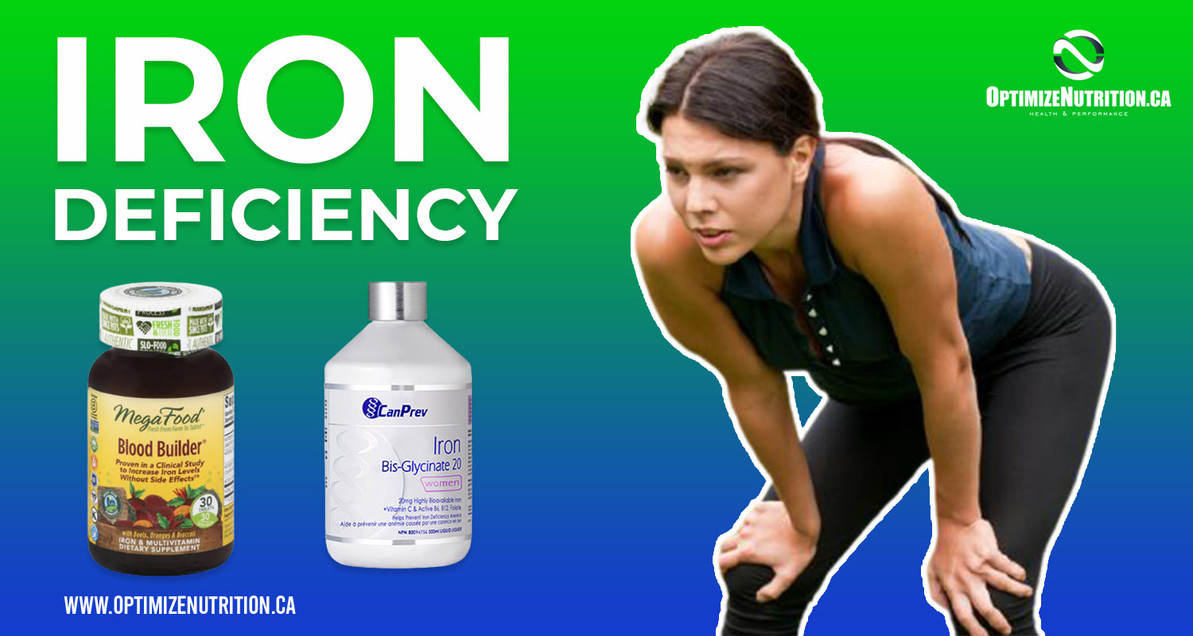Iron Deficiency: Causes, Symptoms, and what you can do
Iron is a micro mineral that is extremely important for your body to function properly. Unfortunately, it is a common deficiency, especially among women, children, and the elderly population.
Why is it Important?
Iron is a main component of hemoglobin, which transports the oxygen we breath throughout the rest of our body via red blood cells, therefore it is essential for keeping your body healthy on a cellular level. It also plays an important role in growth and development, as well as heart, immune, and brain function. Having sufficient iron in the body is also needed to maintain healthy hair, skin and nails. A simple blood test will determine whether your body is storing sufficient amounts. Stored Iron in the body is called ferritin, and the normal range is generally between 30-250 ng/ml. To be considered anemic by medical standards, it must be below 15. However, the optimal levels for most people are between 50 and 100.
What are the Signs of Deficiency?
- -Pale skin
- -Irregular heartbeat
- -Weakness and fatigue
- -Dizziness
- -Shortness of breath
- -Cold body temperature
- -Decline in mental health state
- -Brittle hair and nails
- -Headaches, brain fog
- -Poor appetite
- -Unusual cravings for non-food substances such as ice or dirt
What Causes Iron Deficiency?
Certain people are more susceptible to becoming deficient, such as women between 12 and 50, women who are pregnant, elderly people, athletes, and those who eat a plant-based diet. Other risk factors include:
- -Poorly balanced diet
- -Malabsorption (due to poor digestion, celiac disease, and other conditions)
- -Increased demands such as pregnancy
- -Loss of blood due to menstrual cycle or within the G.I tract
- -Parasites
- -Low stomach acid and/or overuse of antacids
- -Chronic stress

How can you Improve your Iron Levels?
The most important thing is to first address the root cause of your deficiency. If you are having any kind of absorbency issues, you can take all the supplements you want but likely find little improvement.
Be sure to base your diet on nutrient dense, whole foods which will naturally help balance the digestive system and therefore increase absorption of all nutrients. Include Iron rich foods such as:
- -Legumes
- -Nuts and seeds (pumpkin seeds and cashews are excellent)
- -Dark leafy greens (especially spinach and chard)
- -Animal Products (red meat and organ meat specifically)
- -Tofu and Tempeh
- -Beets, Leeks, and green peas
- -Shellfish

Other ways to improve absorption are to combine these foods with other foods that are high in vitamin C. Another good strategy is to cook your foods in a cast-iron pan which is especially helpful for vegetarians and vegans, as Iron that is sourced from plants (non-heme) is more difficult for the body to utilize.
Best Supplements
It is important to remember that it is best to take iron supplements separate from all other minerals as they will compete for absorption. Often it is best taken on an empty stomach, or with a source of vitamin C.
CanPrev Liquid Iron Bis-glycinate:
This is one of the best formulas for restoring Iron levels. Taking Iron in a liquid form increases the absorption and the bis-glycinate form is much easier on the stomach than others. It includes an array of B vitamins as well as vitamin C which also increases the effectiveness.
https://www.optimizenutrition.ca/vitamins-health/canprev-iron-bis-glycinate-20-500ml/
MegaFood Blood Builder:
This is another great product that also includes B vitamins and vitamin C, as well as beet root. It is made from whole food sources and contains completely natural ingredients.
https://www.optimizenutrition.ca/vitamins/
Written by Hayley Dickenson, RHN
Registered Holistic Nutritionist
Recent Posts
-
B Vitamins Explained
In the realm of vitamins and nutrients, the B vitamins stand out as essential players in maintaining …Apr 20, 2024 -
Exploring Coffee Alternatives: Discovering Delicious Substitutes for Your Morning Brew
For many of us, coffee is more than just a beverage; it's a ritual, a pick-me-up, and an essential p …Apr 13, 2024 -
What is Candida Albicans?
Candida albicans is a yeast that lives all over our body, naturally, and usually does not cause a re …Mar 29, 2024




